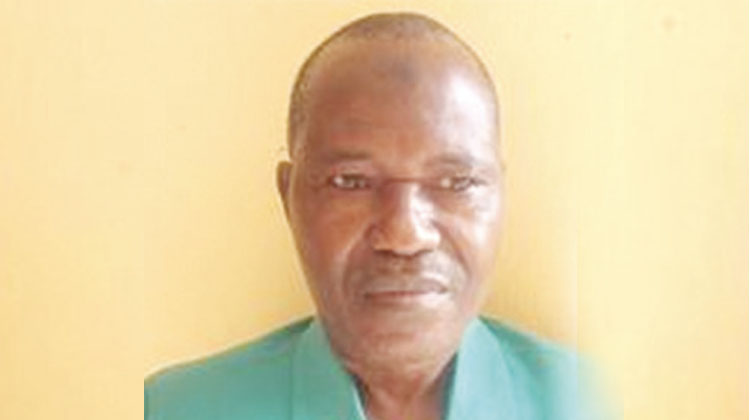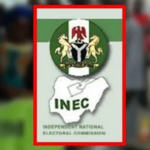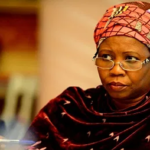
The Nigerian economic environment continues to get tougher and tougher as 2022 moves to its closing stage and 2023 awaits entry. The economy moved from one internal shock to another with the interspersion of external shocks. Since this government took over a distressed economy from the Peoples Democratic Party in 2019, it has hardly found the appropriate answers to the problems. Instead of getting down quickly to put in place a plan with a timeline for solutions, it, for the first six months, ran without ministers. When the cabinet was eventually put in place, the preoccupation was how to discredit the discredited and inept former government on its high-profile corruption status and the blame game was for a good part of the first term. Winning a second term by the party cannot be rested on performance in the first term but it was like allowing an academically poor student to repeat a class.
Statistics coming out from both the national and international data organisations at different times have been unfavourable but conform with the situation on the ground and contrary to information released by government spokespersons. The Nigerian economy has never been in great shape in terms of sectoral diversification despite the potential in many areas. The private sector has refused to wean itself from the apron strings of the public sector and the latter continues to use that structure to its advantage at the expense of the economy through policy manipulation and discriminatory treatment of the private sector participants.
The agricultural sector’s suffering under this government started when gun-carrying herdsmen, joined later by bandits, took over the agricultural farms, unleashing mayhem and fear into the existence of the farmers with the Federal Government feeling unconcerned or giving tacit support to the aggressors. Then came the debate on cattle ranching and cattle roaming the fields. The outcome of the resulting avoidable insecurity was the significant fall in output and resultant general price increases fueled largely by high food prices.
The industrial sector remained uncoordinated with macroeconomic policies, particularly monetary policy, that promoted high cost of production. The Central Bank of Nigeria continued to tighten credits, raising interest rates and tacitly devaluing the exchange rate. Electricity production and distribution worsen while its tariff was raised just as the price of diesel, a major production input, soared. Hope was rekindled when the Dangote refinery was announced but where is the refinery today? The public sector tactics to tacitly frustrate efforts at moving Nigeria forward for personal gains came to play. Instead of making policies that would quicken the realisation of the refinery and the plans and activities of those with modular refineries, they introduced Dangote into the oil importing group and gave him the leadership role, even as the sole importer. Why would he need to hasten his refinery when he could make money easily by importing and dispensing importation license to others? It was a deliberate way of retaining and sustaining the culture of fuel importation which has turned some portfolio businessmen into billionaires at the expense of the country.
Lots of fund was sunk into the iron and steel project without result. When Kayode Fayemi was leaving the project to take up the governorship of Ekiti State some four years ago, he assured the nation that the project required less than 20 per cent funding to start producing iron and steel. Over four years down the line, a new channel of corruption has just been opened with bringing back the Russians who were in charge in the 1980s and some other periods without success. What happened to those who brought it to 80 per cent completion? The two sub-sectors, petroleum and steel, can turn Nigeria into a huge field of an industrial hub, even for Africa. But they have turned them into a money-spinning machine for individuals.
The Minister of Trade and Industry, Maryam Katagun, complained recently about the failure of some of the beneficiaries of the MSMEs intervention fund or survival fund. The same complaint was given on CBN intervention in agriculture and subsidy for some industries. This tells us that the intervention funds were seen as largess by the beneficiaries, possibly because the projects were executed by agencies with no expertise in the business. For example, what is the business of the CBN in the direct funding of agriculture when a Bank of Agriculture exists? The action, however, shows the other side of Nigerians. Like the government, like citizens!
The construction sector has been doing well, particularly the commercial building and housing estate units. Most Nigerians who stole money they could not take to banks faced the sector to buy lands and put-up housing estates, hotels, warehouses, et cetera. Low-level workers in the industry are paid by cash to reduce liquidity in the hands of the owners and their exposure to the prying eyes of the anti-corruption agencies. When we take cognizance of the amount of money the CBN estimated to be in circulation and the trucks of ‘bad’ currencies we see in social media as underground cash, it becomes clear that drastic actions are required to mop up liquidity as quickly as a new government is sworn in to liquidate stolen funds.
Quaternary or information service is another sector that has been growing by leaps and bounds, without government support and interference. The ICT unit has been private sector driven and the rapid expansion of the sector has to do with the global trend. The politicians and civil servants have yet to key into the juicy part except to pad budgets with the quantum of hard and software required to keep various departments functional. The telecommunication sub-sector is almost completely independent of the public sector but for the provision of satellite backbone by the government as part of enabling environment. Albeit, the inefficiencies noticed are largely from inadequate electricity required to power many sub-stations. Notwithstanding some shortcomings, this is the sector that will drive the economy in the nearest future if the hand of the public sector is minimised in its activities.
Macroeconomic policy measures to drive the economy have not helped in many ways. There seems to be a lack of coordination and cooperation between the agencies that formulate and implement policies viz the Federal Ministry of Finance and CBN. While the CBN monetary policies have been restrictive, the fiscal policy from the Ministry of Finance has been expansionary. The activities of the agencies are supposed to be driven by the outcome of some research exercises but what we see in many cases indicate that policies are made with the rule of thumb.
The belief that the country’s economy has to be run through domestic and foreign debts as declared by Kemi Adeosun; and her successor, Zainab Ahmed, the current minister, has led the country to a debt trap that will leave no revenue for development. The incompetence in economic management led to Nigeria becoming the poverty capital of the world, an appellation that could take years to clear.
What can we say about the education and health sectors? These are two sectors that can keep poverty at bay when fully functional. Between 2020 and 2022, there was a partial closure of the institutions that produce human capital for more than one year cumulatively. Just like the education section, the health sector also witnessed bout of strikes. Serious governments do not play with these two sectors. Resources are committed by governments with the expected increasing returns. Not so in many countries in Africa in which Nigeria is the greatest culprit.
I can bet that Nigerians are eagerly awaiting the change of baton in governance in 2023. The eagerness is not because there are assurances that tomorrow will be better. It is because they are hopeful the punishment in the hands of this government will stop. Right from 2015 when the first fuel price was effected after what seemed like shortages, the price hike never looked back. And, it seems the government is ending from where it began. The fuel shortage is here again. The prices are climbing, the excuses and denials are already in the air. The government seems nonchalant even when election is in the air. The people are being taken for granted. The change Nigerians are expecting is what cannot be affirmed. Whatever happens, a new face must appear as President of Nigeria come 2023.





